In 2025 the best online Forex brokers offer user-friendly platforms, great customer support, and a wide range of trading tools. They provide low spreads and commissions, making it easier for traders to maximize their profits. Safety is essential, so top brokers are regulated by trusted authorities, ensuring your funds are secure.
Many also offer educational resources and demo accounts for beginners to practice trading without risk. Overall, these brokers aim to create a positive and efficient trading experience for everyone.
Picks for Every InvestorThe foreign exchange market, commonly known as Forex, has witnessed exponential growth in recent years. As we approach 2025, the landscape of online Forex brokers continues to evolve, offering traders a wide array of options to suit their individual needs and preferences. Whether you're a seasoned trader or just starting your Forex journey, choosing the right broker is crucial for your success in this dynamic market.
In this comprehensive guide, we'll explore the top online Forex brokers for 2025, highlighting their unique features, strengths, and potential drawbacks. We'll delve into the factors that make these brokers stand out in the competitive world of Forex trading, and provide you with the information you need to make an informed decision about which platform best aligns with your trading goals.
As we embark on this exploration of the best online Forex brokers, remember that the world of currency trading is both exciting and challenging. With the right tools and knowledge at your disposal, you'll be well-equipped to navigate the complexities of the Forex market and potentially reap significant rewards. So, let's dive in and discover the top Forex brokers that are set to dominate the industry in 2025!
Understanding the Forex Market in 2025
The Forex market of 2025 is a far cry from what traders experienced just a few years ago. Technological advancements, regulatory changes, and shifting global economic dynamics have all played a role in shaping the current landscape. As we delve into the intricacies of this evolving market, it's crucial to understand the key factors that will influence your trading experience.
Technological Innovations Shaping Forex Trading
In 2025, artificial intelligence and machine learning have become integral parts of Forex trading platforms. These technologies offer traders unprecedented insights into market trends and potential trading opportunities. Advanced algorithms analyze vast amounts of data in real-time, providing traders with actionable intelligence that was once the domain of large financial institutions.
Moreover, the rise of blockchain technology has revolutionized the way transactions are processed in the Forex market. Decentralized finance (DeFi) protocols have introduced new levels of transparency and efficiency, reducing transaction costs and minimizing the risk of fraud. As a result, traders now enjoy faster execution times and enhanced security for their funds.
Regulatory Landscape and Its Impact on Traders
The regulatory environment for Forex trading has undergone significant changes in recent years. Governments and financial authorities worldwide have implemented stricter regulations to protect traders and maintain market integrity. In 2025, we see a more harmonized global regulatory framework, with increased cooperation between international regulatory bodies.
These regulatory changes have had a profound impact on how Forex brokers operate. Reputable brokers now adhere to stringent compliance standards, including enhanced customer due diligence, regular audits, and transparent reporting of trading activities. While these measures may seem cumbersome, they ultimately benefit traders by creating a safer and more trustworthy trading environment.
Emerging Markets and Currency Pairs
The Forex market of 2025 has seen a shift in the balance of economic power, with emerging markets playing an increasingly significant role. Currencies from countries in Asia, Africa, and South America have gained prominence, offering traders new opportunities for diversification and potential profits.
As a result, the best online Forex brokers now offer an expanded range of currency pairs, including exotic combinations that were once considered too niche or risky. This broader selection allows traders to capitalize on global economic trends and regional developments, adding new dimensions to their trading strategies.
The Rise of Social and Copy Trading
Social trading has become a cornerstone of the Forex market in 2025. Platforms now integrate advanced social features that allow traders to connect, share insights, and even automatically copy the trades of successful investors. This democratization of trading knowledge has lowered the barrier to entry for newcomers while providing experienced traders with new avenues for monetizing their expertise.
Copy trading, in particular, has gained immense popularity. Novice traders can now mirror the strategies of proven professionals, learning the ropes of Forex trading while potentially earning profits. However, it's important to note that while copy trading can be a valuable learning tool, it's not without risks, and traders should always conduct their own due diligence.
Mobile Trading and Accessibility
In 2025, mobile trading is no longer just a convenience—it's a necessity. The best online Forex brokers have invested heavily in developing robust mobile applications that offer the full functionality of their desktop platforms. These apps provide real-time market data, advanced charting tools, and seamless execution capabilities, allowing traders to manage their positions from anywhere in the world.
The emphasis on mobile accessibility has also led to the development of more intuitive user interfaces and streamlined trading processes. Brokers now prioritize user experience, recognizing that a well-designed mobile platform can be a significant competitive advantage in attracting and retaining traders.
As we move forward in our exploration of the best online Forex brokers for 2025, keep these market dynamics in mind. The brokers that have successfully adapted to these changes and embraced innovation are the ones that stand out in this competitive landscape. In the following sections, we'll dive deep into the top picks, examining how they leverage these trends to provide superior trading experiences for their clients.
Criteria for Selecting the Best Forex Brokers
Choosing the right Forex broker is a critical decision that can significantly impact your trading success. In 2025, with the plethora of options available, it's essential to have a clear set of criteria to evaluate potential brokers. Let's explore the key factors you should consider when selecting a Forex broker that aligns with your trading goals and preferences.
Regulatory Compliance and Security
In the ever-evolving world of Forex trading, regulatory compliance remains paramount. The best brokers in 2025 are those that adhere to strict regulatory standards set by reputable financial authorities. Look for brokers regulated by well-known bodies such as:
- The Financial Conduct Authority (FCA) in the UK
- The Cyprus Securities and Exchange Commission (CySEC)
- The Australian Securities and Investments Commission (ASIC)
- The U.S. Commodity Futures Trading Commission (CFTC)
These regulators ensure that brokers maintain high standards of operation, including segregation of client funds, regular audits, and transparent reporting. A broker's regulatory status is a strong indicator of its reliability and commitment to protecting traders' interests.
Additionally, consider the broker's security measures. In 2025, advanced encryption technologies and multi-factor authentication have become standard features. Look for brokers that employ state-of-the-art security protocols to safeguard your personal and financial information.
Trading Platforms and Technology
The quality of a broker's trading platform can make or break your trading experience. In 2025, the best Forex brokers offer cutting-edge platforms that combine user-friendly interfaces with powerful analytical tools. Key features to look for include:
- Advanced charting capabilities with a wide range of technical indicators
- Real-time market data and news feeds
- Customizable layouts to suit your trading style
- Automated trading capabilities for implementing algorithmic strategies
- Seamless integration across desktop, web, and mobile platforms
Many top brokers offer popular third-party platforms like MetaTrader 4 (MT4) and MetaTrader 5 (MT5), which have stood the test of time. However, proprietary platforms developed by brokers themselves can often offer unique features tailored to their specific clientele.
Range of Trading Instruments
While Forex is your primary focus, the best brokers in 2025 offer a diverse range of trading instruments to help you diversify your portfolio. Look for brokers that provide access to:
- Major, minor, and exotic currency pairs
- Contracts for Difference (CFDs) on stocks, indices, and commodities
- Cryptocurrencies and crypto-based CFDs
- Options and futures contracts
A wider range of instruments allows you to capitalize on various market conditions and implement more sophisticated trading strategies.
Competitive Pricing and Execution
In the competitive landscape of 2025, pricing remains a crucial factor. The best Forex brokers offer tight spreads and low commissions, ensuring that your trading costs are minimized. Pay attention to:
- Spread types (fixed or variable) and average spread sizes for major pairs
- Commission structures for different account types
- Swap rates for overnight positions
- Any additional fees or charges
Equally important is the quality of trade execution. Look for brokers that offer fast and reliable order execution with minimal slippage. Some brokers now provide execution speed guarantees or compensation for significant delays, reflecting the industry's focus on rapid and accurate trade processing.
Educational Resources and Research Tools
The Forex market is constantly evolving, and continuous learning is key to staying ahead. The best brokers in 2025 invest heavily in educational resources and research tools to support their clients' growth. Look for brokers that offer:
- Comprehensive trading courses for beginners and advanced traders
- Regular webinars and seminars on market analysis and trading strategies
- Economic calendars and market insights from expert analysts
- Demo accounts for risk-free practice
- Access to trading communities and forums for peer learning
These resources can be invaluable, especially for newcomers to the Forex market, but they also benefit experienced traders looking to refine their strategies or explore new trading techniques.
Customer Support and Service
In the fast-paced world of Forex trading, responsive and knowledgeable customer support can be crucial. The best brokers in 2025 offer:
- 24/7 customer support via multiple channels (phone, email, live chat)
- Multilingual support staff to cater to a global clientele
- Dedicated account managers for high-volume traders
- Comprehensive FAQs and knowledge bases for self-service support
Consider the quality and availability of customer support when choosing a broker, as it can significantly impact your trading experience, especially during critical moments.
Deposit and Withdrawal Options
Flexibility in funding your account and withdrawing your profits is essential. Top Forex brokers in 2025 offer a wide range of payment methods, including:
- Bank wire transfers
- Credit and debit cards
- E-wallets (PayPal, Skrill, Neteller)
- Cryptocurrencies
Look for brokers that offer fast processing times for both deposits and withdrawals, with minimal or no fees. Transparency in the fee structure for different payment methods is also crucial.
Innovation and Adaptability
The Forex market is constantly evolving, and the best brokers are those that stay ahead of the curve. Consider brokers that demonstrate a commitment to innovation through:
- Integration of emerging technologies like AI and blockchain
- Regular updates and improvements to their trading platforms
- Introduction of new trading tools and features
- Adaptation to changing market conditions and regulatory requirements
A broker's ability to innovate and adapt is a good indicator of its long-term viability and commitment to providing the best possible service to its clients.
By carefully evaluating brokers based on these criteria, you'll be well-equipped to choose a Forex broker that not only meets your current needs but also supports your growth as a trader in the dynamic market of 2025 and beyond. In the following sections, we'll delve into our top picks for the best online Forex brokers, examining how they measure up against these crucial factors.
Top 5 Forex Brokers for 2025
After thorough research and analysis, we've identified the top 5 Forex brokers that stand out in the competitive landscape of 2025. These brokers have consistently demonstrated excellence across the criteria we discussed earlier, offering traders a combination of cutting-edge technology, competitive pricing, and comprehensive support. Let's dive into each of these top picks and explore what makes them stand out.
1. TechTrade FX
TechTrade FX has emerged as a leader in the Forex industry, particularly known for its innovative use of artificial intelligence in trading platforms.
Key Features:
- AI-powered trading assistant that provides real-time market insights and trade suggestions
- Proprietary platform with advanced charting tools and automated trading capabilities
- Wide range of tradable assets, including over 100 currency pairs and various CFDs
- Competitive spreads starting from 0.1 pips on major pairs
- Robust educational resources, including an AI-driven personalized learning path
Pros:
- Cutting-edge technology integration
- Excellent execution speeds with minimal slippage
- Comprehensive educational resources suitable for all trader levels
Cons:
- Higher minimum deposit requirement compared to some competitors
- Advanced features may be overwhelming for absolute beginners
TechTrade FX is an excellent choice for tech-savvy traders who want to leverage the latest innovations in Forex trading. Its AI-powered tools provide a significant edge in market analysis and decision-making.
2. GlobalMarket Pro
GlobalMarket Pro has built a reputation for its extensive global reach and diverse range of trading instruments.
Key Features:
- Access to over 180 currency pairs, including exotic and minor pairs
- Multi-asset trading platform offering stocks, commodities, and cryptocurrencies
- Advanced risk management tools, including guaranteed stop-loss orders
- 24/7 customer support in over 20 languages
- Competitive pricing with spreads as low as 0.6 pips on major pairs
Pros:
- Extensive range of tradable assets
- Strong regulatory compliance with multiple tier-1 licenses
- Excellent customer support with global coverage
Cons:
- Higher spreads on some exotic pairs
- Platform may have a steeper learning curve for newcomers
GlobalMarket Pro is ideal for traders looking for a one-stop-shop for all their trading needs, especially those interested in exploring less common currency pairs and diverse asset classes.
3. SwiftTrade FX
SwiftTrade FX has made a name for itself with its lightning-fast execution speeds and mobile-first approach to trading.
Key Features:
- Industry-leading execution speed with average order processing time of 0.05 seconds
- Intuitive mobile app with full trading functionality
- Social trading features allowing users to follow and copy top performers
- Low minimum deposit requirement of $50
- Competitive spreads starting from 0.8 pips on major pairs
Pros:
- Excellent for mobile traders
- Fast and reliable trade execution
- User-friendly platform suitable for beginners
Cons:
- Limited advanced analytical tools compared to some competitors
- Fewer educational resources for advanced traders
SwiftTrade FX is perfect for traders who prioritize speed and mobile accessibility. Its social trading features also make it an attractive option for beginners looking to learn from experienced traders.
4. SecureTrade Global
SecureTrade Global stands out for its strong focus on security and regulatory compliance, making it a trusted choice for risk-averse traders.
Key Features:
- Regulated by multiple tier-1 authorities, including FCA and ASIC
- Advanced encryption and multi-factor authentication for enhanced security
- Negative balance protection and segregated client funds
- Competitive pricing with average spreads of 0.9 pips on EUR/USD
- Comprehensive educational resources, including webinars and trading courses
Pros:
- Strong focus on security and regulatory compliance
- Excellent educational resources for all trader levels
- Transparent pricing and execution policy
Cons:
- More limited range of tradable assets compared to some competitors
- Higher minimum deposit requirement for premium account types
SecureTrade Global is an excellent choice for traders who prioritize safety and regulatory compliance, especially those new to Forex trading who value a secure and educational trading environment.
5. InnovateFX
InnovateFX has carved out a niche as a broker that embraces cutting-edge financial technologies, particularly in the realm of cryptocurrency integration.
Key Features:
- Seamless integration of traditional Forex and cryptocurrency trading
- Blockchain-based transaction processing for enhanced transparency
- Advanced algorithmic trading capabilities
- Competitive spreads starting from 0.7 pips on major pairs
- Innovative research tools, including sentiment analysis and social media trend tracking
Pros:
- Forward-thinking approach to financial technology integration
- Excellent for traders interested in both Forex and cryptocurrencies
- Unique research and analysis tools
Cons:
- May be too complex for traders not interested in cryptocurrencies
- Limited physical presence with primarily digital customer support
InnovateFX is ideal for tech-savvy traders who are interested in the intersection of traditional Forex trading and emerging financial technologies, particularly those looking to diversify into cryptocurrencies.
Each of these top 5 Forex brokers for 2025 offers a unique set of features and advantages. Your choice will depend on your specific trading needs, risk tolerance, and technological preferences. In the next section, we'll provide guidance on how to choose the right broker from among these top contenders based on your individual trading profile.
Choosing the Right Broker for Your Trading Style
Selecting the ideal Forex broker from our top 5 picks requires careful consideration of your individual trading style, goals, and preferences. Each trader has unique needs, and what works perfectly for one may not be the best fit for another. In this section, we'll guide you through the process of matching your trading profile with the most suitable broker.
Assessing Your Trading Experience
Your level of trading experience plays a crucial role in determining which broker is best suited for you.
For Beginners:
If you're new to Forex trading, prioritize brokers that offer:
- Comprehensive educational resources
- User-friendly platforms
- Strong customer support
- Demo accounts for practice
From our top 5, SecureTrade Global and SwiftTrade FX are particularly well-suited for beginners due to their educational offerings and user-friendly interfaces.
For Intermediate Traders:
As an intermediate trader, you might be looking for:
- More advanced analytical tools
- A wider range of tradable assets
- Competitive pricing
- Social trading features
GlobalMarket Pro and InnovateFX offer features that cater well to intermediate traders, providing a good balance of advanced tools and diverse trading options.
For Advanced Traders:
Experienced traders typically require:
- Sophisticated trading platforms with customization options
- Advanced order types and risk management tools
- Tight spreads and low commissions
- High-speed execution
TechTrade FX stands out for advanced traders with its AI-powered tools and cutting-edge technology.
Considering Your Trading Strategy
Your preferred trading strategy should align with your chosen broker's offerings.
For Day Traders and Scalpers:
If you engage in frequent, short-term trades, prioritize:
- Low spreads and commissions
- Fast execution speeds
- Advanced charting tools
SwiftTrade FX and TechTrade FX are excellent choices for day traders and scalpers due to their competitive pricing and fast execution.
For Swing Traders:
If you hold positions for days or weeks, look for:
- Comprehensive market analysis tools
- Lower overnight holding costs
- Wide range of tradable instruments
GlobalMarket Pro and InnovateFX offer features that align well with swing trading strategies.
For Long-Term Position Traders:
If you prefer holding positions for extended periods, consider:
- Brokers with strong regulatory oversight
- Competitive swap rates for overnight positions
- Robust fundamental analysis tools
SecureTrade Global and GlobalMarket Pro are good options for long-term traders due to their strong regulatory compliance and diverse analytical tools.
Evaluating Your Risk Tolerance
Your risk tolerance should influence your broker choice.
For Conservative Traders:
If you have a low risk tolerance, prioritize:
- Brokers with strong regulatory oversight
- Negative balance protection
- Conservative leverage options
SecureTrade Global is an excellent choice for risk-averse traders due to its strong focus on security and compliance.
For Moderate Risk Takers:
If you're comfortable with moderate risk, look for:
- A balance of security features and trading opportunities
- Flexible leverage options
- Diverse range of tradable assets
GlobalMarket Pro and InnovateFX offer a good balance of security and diverse trading options for moderate risk takers.
For High-Risk Traders:
If you have a high risk tolerance and seek maximum opportunity, consider:
- Brokers offering high leverage
- Wide range of exotic pairs and other high-volatility instruments
- Advanced trading platforms with sophisticated tools
TechTrade FX and SwiftTrade FX cater well to high-risk traders with their advanced platforms and diverse asset offerings.
Considering Your Investment Amount
Your available capital for trading should also influence your broker choice.
For Small Account Traders:
If you're starting with a small account, look for:
- Low minimum deposit requirements
- Micro lot trading options
- No inactivity fees
SwiftTrade FX is particularly suitable for small account traders due to its low minimum deposit and beginner-friendly features.
For Medium to Large Account Traders:
If you have a substantial amount to invest, prioritize:
- Premium account options with better trading conditions
- Dedicated account managers
- Advanced trading platforms and tools
TechTrade FX and GlobalMarket Pro offer excellent features for traders with larger accounts, including advanced tools and personalized service.
Technological Preferences
Your comfort with technology and preference for certain trading platforms should guide your choice.
For Mobile-First Traders:
If you primarily trade on mobile devices, choose brokers with:
- Robust, full-featured mobile apps
- Seamless synchronization across devices
- Mobile-optimized interfaces
SwiftTrade FX is the standout choice for mobile-first traders due to its mobile-centric approach.
For Desktop Trading Enthusiasts:
If you prefer trading on desktop platforms, look for:
- Powerful, customizable desktop software
- Multi-monitor support
- Advanced charting and analytical tools
TechTrade FX and GlobalMarket Pro offer sophisticated desktop platforms that cater to this preference.
For Tech-Savvy Traders Interested in Cryptocurrencies:
If you're keen on exploring the intersection of Forex and crypto, consider:
- Brokers offering both traditional Forex and cryptocurrency trading
- Platforms integrating blockchain technology
- Innovative financial products
InnovateFX is the clear choice for traders interested in the convergence of Forex and cryptocurrency markets.
By carefully considering these factors and aligning them with the strengths of each broker, you can make an informed decision that best suits your trading style and goals. Remember, the "best" broker is the one that aligns most closely with your individual needs and preferences. In the next section, we'll discuss how to get started with your chosen broker and make the most of your Forex trading journey.
Getting Started with Your Chosen Broker
Once you've selected the Forex broker that best aligns with your trading style and goals, it's time to take the next steps to begin your trading journey. This section will guide you through the process of setting up your account, making your initial deposit, and preparing for your first trades.
Opening Your Trading Account
The account opening process is generally straightforward, but it's important to approach it carefully to ensure a smooth start to your trading experience.
Visit the Broker's Website: Navigate to the official website of your chosen broker. Look for a prominent "Open Account" or "Get Started" button.
Choose Your Account Type: Most brokers offer multiple account types catering to different trader profiles. Select the one that best matches your trading style and capital.
Fill Out the Application Form: You'll need to provide personal information, including:
- Full name
- Date of birth
- Address
- Contact details
- Employment information
- Financial details
Verify Your Identity: Due to regulatory requirements, you'll need to verify your identity. This typically involves submitting:
- A government-issued ID (passport, driver's license)
- Proof of address (recent utility bill or bank statement)
Answer the Suitability Questionnaire: Brokers are required to assess your trading knowledge and experience. Answer these questions honestly to ensure you receive appropriate support and access to suitable products.
Review and Accept Terms: Carefully read the broker's terms and conditions, privacy policy, and any other relevant documents before accepting.
Set Up Your Trading Platform: Once your account is approved, you'll receive login credentials for your trading platform. Download and install the platform if required.
Making Your Initial Deposit
After your account is set up, you'll need to fund it to start trading.
Choose Your Deposit Method: Select from the available options, which may include:
- Bank wire transfer
- Credit/debit card
- E-wallets (PayPal, Skrill, Neteller)
- Cryptocurrencies (for brokers that support this)
Consider the Minimum Deposit: Ensure you're comfortable with the minimum deposit requirement for your chosen account type.
Be Aware of Fees: Some deposit methods may incur fees. Choose the most cost-effective option for your situation.
Verify Your Deposit: Once you've made the deposit, verify that it has been credited to your trading account. This usually happens instantly for most electronic methods, but bank transfers may take a few business days.
Familiarizing Yourself with the Trading Platform
Before you start trading with real money, take time to get comfortable with your broker's trading platform.
Explore the Demo Account: Most brokers offer demo accounts loaded with virtual funds. Use this to:
- Familiarize yourself with the platform's interface
- Practice executing trades without financial risk
- Test different trading strategies
Customize Your Workspace: Set up your charts, watchlists, and other tools according to your preferences.
Explore Available Resources: Take advantage of any tutorials, webinars, or guides offered by your broker to learn about the platform's features.
Test Order Types: Practice placing different types of orders (market, limit, stop) to understand how they work.
Experiment with Risk Management Tools: Learn how to set stop-loss and take-profit orders to manage your risk effectively.
Setting Up Risk Management Strategies
Before you start trading with real money, it's crucial to have a solid risk management plan in place.
Determine Your Risk Tolerance: Decide how much of your capital you're willing to risk on any single trade. A common rule of thumb is not to risk more than 1-2% of your account balance on a single trade.
Set Stop-Loss Orders: Always use stop-loss orders to limit potential losses. Place these at levels that align with your risk tolerance and market analysis.
Use Proper Position Sizing: Calculate your position sizes based on your account balance and the risk per trade you're willing to take.
Understand Leverage: If your broker offers leverage, use it cautiously. High leverage can amplify both gains and losses.
Implement a Trading Plan: Develop a clear trading plan that outlines your entry and exit strategies, risk management rules, and overall trading goals.
Staying Informed and Educated
Continuous learning is key to success in Forex trading.
Utilize Broker Resources: Take advantage of educational materials, market analysis, and economic calendars provided by your broker.
Follow Financial News: Stay updated on economic events and news that could impact currency markets.
Join Trading Communities: Participate in forums or social trading features offered by your broker to learn from other traders.
Attend Webinars and Seminars: Many brokers offer live educational sessions. Participate in these to deepen your trading knowledge.
Keep a Trading Journal: Record your trades, including the reasoning behind them and their outcomes. This can help you identify patterns and improve your strategy over time.
Starting Small and Scaling Gradually
As you begin your trading journey, it's wise to start small and scale up gradually.
Begin with Micro Lots: If available, start trading with micro lots to minimize risk while you gain experience.
Set Realistic Goals: Don't expect to become profitable overnight. Set small, achievable goals and focus on consistent improvement.
Monitor Your Performance: Regularly review your trading performance. Be honest about what's working and what isn't.
Gradually Increase Position Sizes: As you gain confidence and consistency, slowly increase your position sizes.
Stay Disciplined: Stick to your trading plan and risk management rules, even as you become more comfortable with trading.
By following these steps and approaching your Forex trading journey with patience and diligence, you'll be well-positioned to make the most of your chosen broker's offerings. Remember, successful trading is a marathon, not a sprint. Take your time to build a solid foundation, and don't hesitate to reach out to your broker's customer support if you need assistance along the way. In the next section, we'll explore advanced strategies and tools that can help you take your Forex trading to the next level.
Advanced Strategies and Tools for Forex Trading Success
As you gain experience and confidence in Forex trading, you may want to explore more sophisticated strategies and tools to enhance your trading performance. This section will introduce you to advanced concepts and techniques that can help you refine your approach and potentially improve your trading outcomes.
Algorithmic Trading and Expert Advisors
Algorithmic trading involves using computer programs to execute trades based on predefined criteria. Expert Advisors (EAs) are automated trading systems that can analyze market data and execute trades on your behalf.
Benefits of Algorithmic Trading:
- Eliminates emotional decision-making
- Allows for 24/7 trading without constant monitoring
- Can backtest strategies using historical data
Getting Started with Algorithmic Trading:
- Learn a programming language like MQL4/5 for MetaTrader platforms
- Start with simple strategies and gradually increase complexity
- Thoroughly backtest and forward test your algorithms before live trading
- Consider using pre-built EAs from reputable sources to learn and customize
Advanced Technical Analysis Techniques
While basic technical analysis is essential, advanced techniques can provide deeper insights into market trends and potential reversals.
Advanced Technical Indicators:
- Ichimoku Cloud: Provides a comprehensive view of support, resistance, and trend direction
- Elliott Wave Theory: Helps identify market cycles and potential turning points
- Fibonacci Extensions and Retracements: Used to project potential support and resistance levels
Advanced Chart Patterns:
- Harmonic Patterns: Complex patterns that can indicate potential reversals
- Wolfe Waves: Help identify potential trend exhaustion and reversals
Intermarket Analysis
Intermarket analysis involves studying relationships between different financial markets to gain a broader perspective on potential currency movements.
Key Intermarket Relationships:
- Equity markets and risk sentiment
- Commodity prices and commodity-linked currencies
- Bond yields and interest rate expectations
Implementing Intermarket Analysis:
- Monitor correlations between currency pairs and other markets
- Use economic calendars to track important events across different markets
- Develop a holistic view of global economic conditions and their potential impact on currencies
Advanced Risk Management Techniques
As you take on more complex trades, your risk management strategies should evolve accordingly.
Portfolio-Based Risk Management:
- Diversify across different currency pairs and trading strategies
- Use correlation analysis to avoid overexposure to similar market movements
Advanced Position Sizing:
- Kelly Criterion: A mathematical formula to optimize position sizes based on expected return and risk
- Risk of Ruin calculations: Determine the probability of losing your entire trading capital
Hedging Strategies:
- Options trading: Use currency options to hedge against potential adverse movements
- Correlation hedging: Open positions in negatively correlated pairs to offset risk
Sentiment Analysis and Social Trading
Understanding market sentiment can provide valuable insights into potential price movements.
Tools for Sentiment Analysis:
- Commitment of Traders (COT) reports: Provide data on positioning of large traders
- Social media sentiment analysis: Tools that gauge market sentiment based on social media activity
- Fear and Greed indices: Measure overall market sentiment
Leveraging Social Trading:
- Follow and analyze the trades of successful traders on social trading platforms
- Use sentiment data to identify potential contrarian trading opportunities
Advanced Economic Analysis
Developing a deep understanding of economic factors can give you an edge in fundamental analysis.
Key Areas to Focus On:
- Central bank policies and forward guidance
- Geopolitical events and their potential market impact
- Long-term economic trends and structural changes in economies
Tools for Economic Analysis:
- Economic surprise indices: Measure how economic data compares to expectations
- Yield curve analysis: Understand market expectations for future interest rates
- Leading economic indicators: Identify potential shifts in economic cycles
Machine Learning and Artificial Intelligence in Forex Trading
The integration of machine learning (ML) and artificial intelligence (AI) is revolutionizing Forex trading, offering new ways to analyze markets and execute trades.
Applications of ML and AI in Forex:
- Pattern recognition in price charts
- Predictive modeling for currency movements
- Optimization of trading strategies
- Natural language processing for news sentiment analysis
Getting Started with ML and AI:
- Learn programming languages like Python or R, which are commonly used in ML/AI
- Explore ML libraries and frameworks like TensorFlow or scikit-learn
- Start with simple ML models and gradually move to more complex algorithms
- Use cloud computing platforms for processing large datasets and running complex models
Advanced Order Types and Execution Strategies
Utilizing sophisticated order types can help you execute your trading plan more effectively.
Advanced Order Types:
- One-Cancels-Other (OCO) orders: Combine a stop-loss and a take-profit order
- Trailing stops: Automatically adjust your stop-loss as the market moves in your favor
- Time-based orders: Execute trades at specific times or intervals
Smart Order Routing:
- Understand how your broker routes orders to liquidity providers
- Consider using brokers that offer smart order routing to get better execution prices
Continuous Improvement and Adaptation
The Forex market is constantly evolving, and successful traders must adapt accordingly.
Strategies for Continuous Improvement:
- Regularly review and analyze your trading performance
- Stay updated on new trading technologies and methodologies
- Attend advanced trading seminars and workshops
- Network with other experienced traders to share insights and strategies
- Consider obtaining professional certifications in financial markets or trading
By incorporating these advanced strategies and tools into your trading approach, you can potentially enhance your decision-making process and improve your overall trading performance. Remember, mastering these techniques takes time and practice. Always start with paper trading or small positions when implementing new strategies, and gradually scale up as you gain confidence and consistency.
As you continue to evolve as a trader, it's crucial to maintain a balance between leveraging advanced tools and staying true to your core trading principles. In the next section, we'll discuss how to maintain long-term success in Forex trading, including managing the psychological aspects of trading and adapting to changing market conditions.
Maintaining Long-Term Success in Forex Trading
Achieving consistent profitability in Forex trading is a challenging endeavor that requires more than just technical knowledge and advanced strategies. Long-term success depends on a combination of continuous learning, psychological resilience, and adaptability to changing market conditions. In this final section, we'll explore










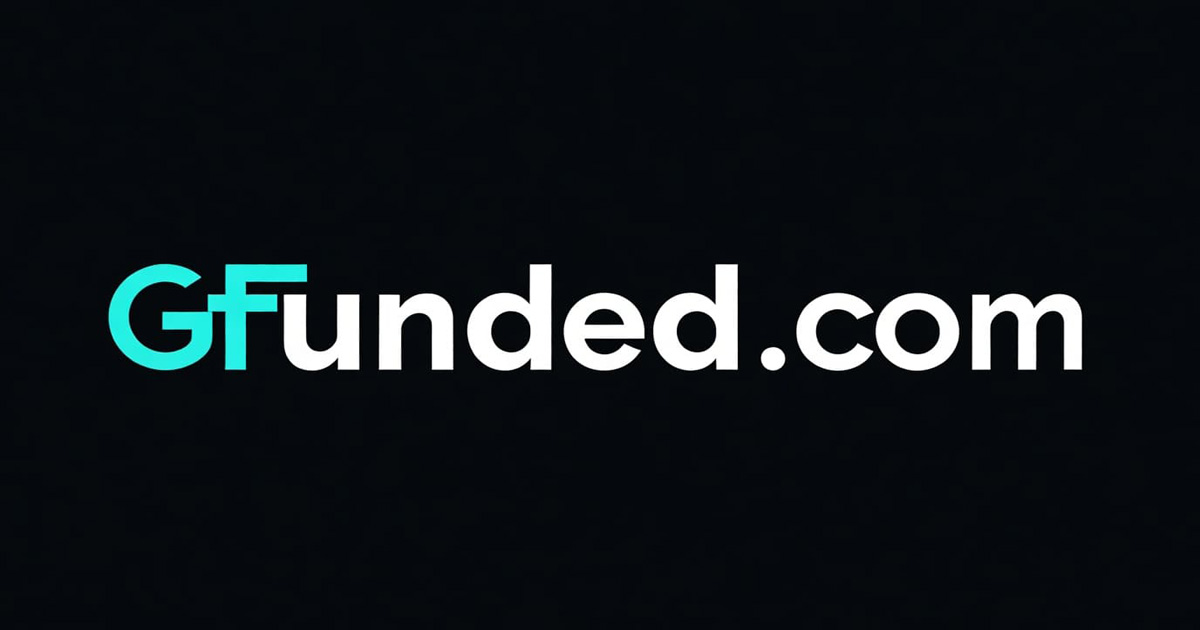







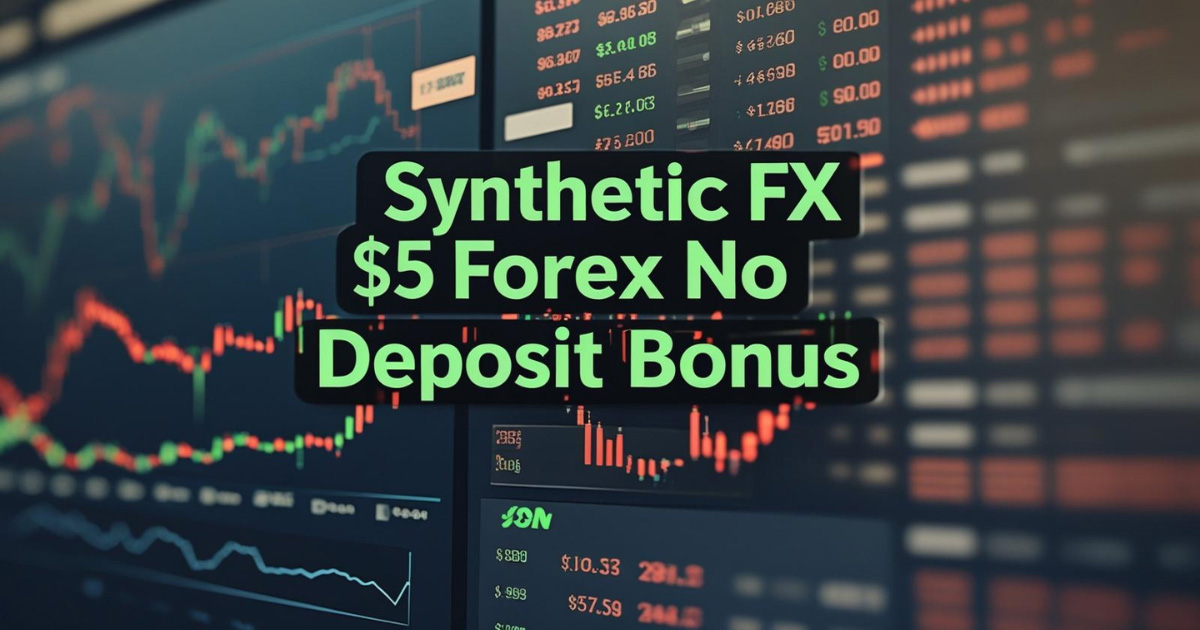





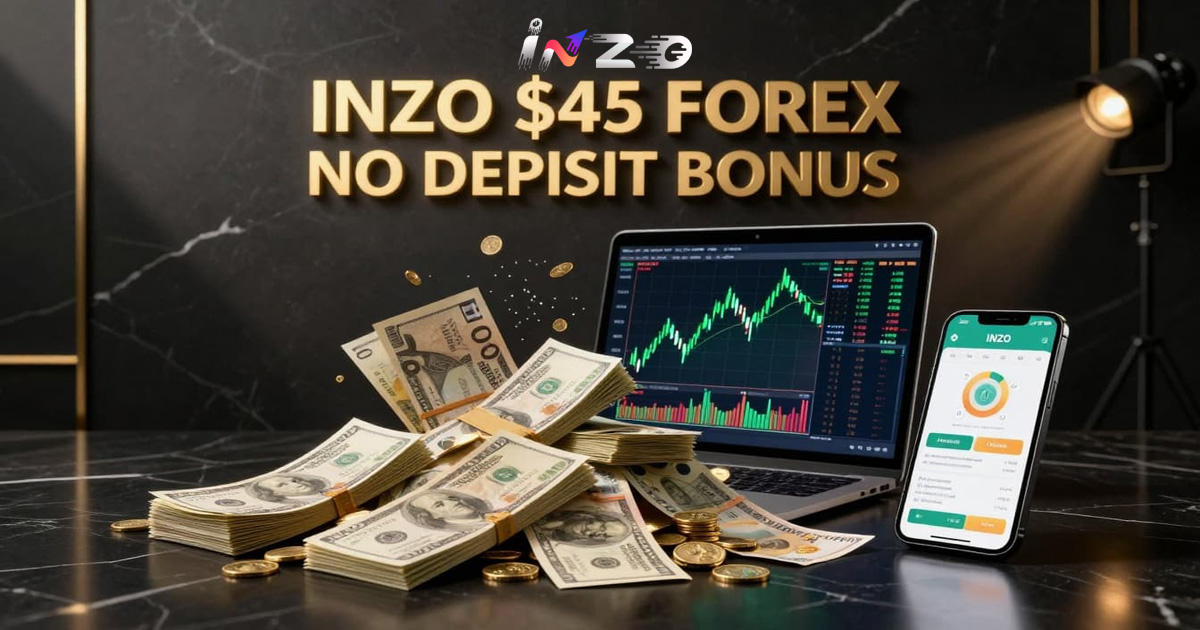
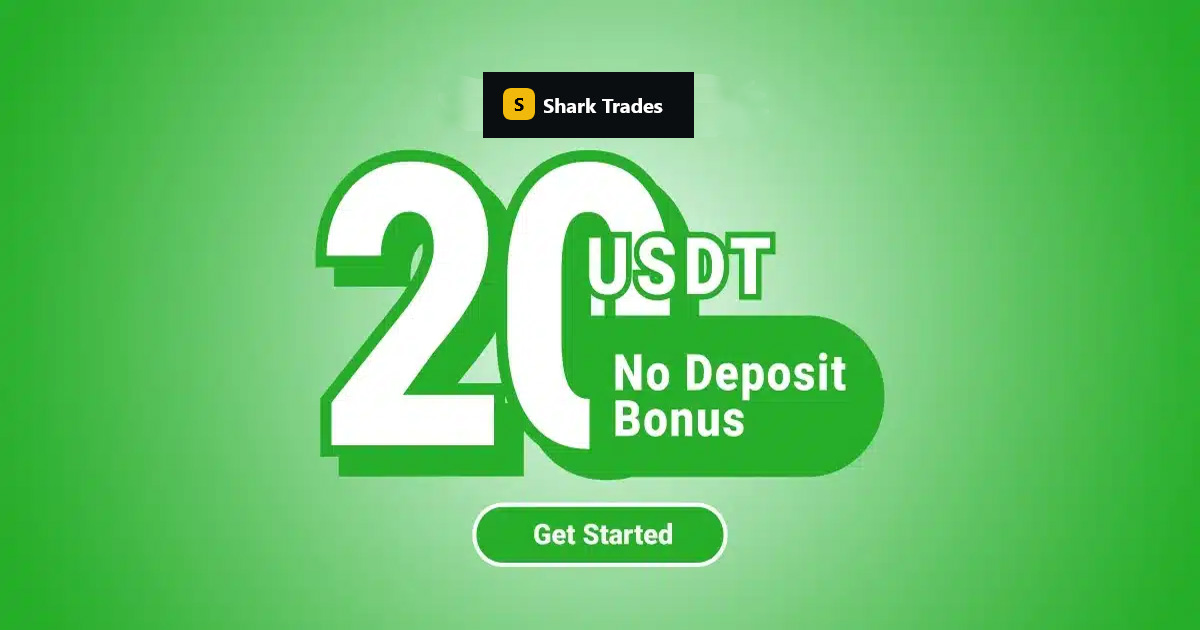


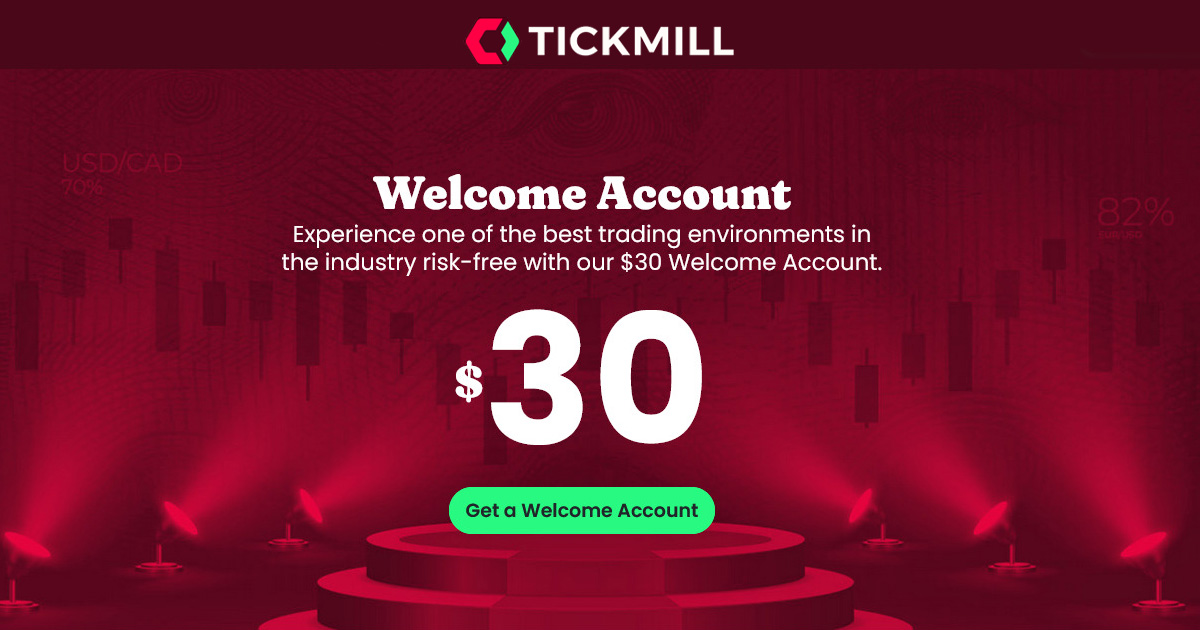


(1) Comments
1